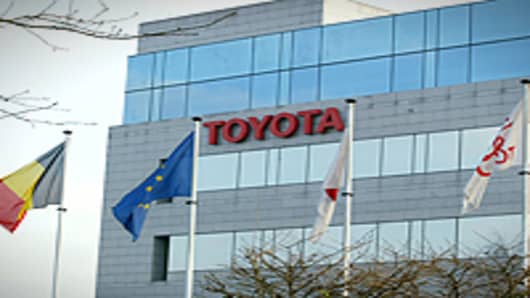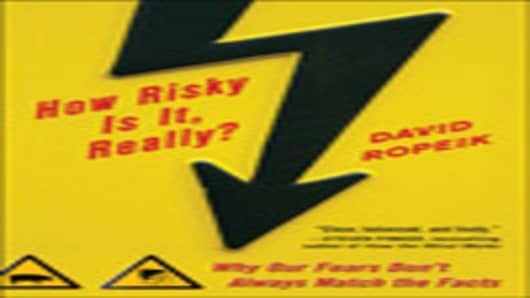Guest Author Blog: David Ropeik is a consultant in risk communication and author of How Risky Is It, Really? Why Our Fears Don’t Always Match the Facts, to be published in March by McGraw Hill.
Toyota is falling all over itself apologizing for flaws in its vehicles.
They are running TV adsas part of an effort to “restore your faith in our company”.
They ran an OpEd in the Washington Post, in which company president Akio Toyoda personally apologized and said he wants to “restore trust in our word and in our products”.
Toyota is doing the right thing.
Now.
But as someone who studies the way people perceive risk, and the importance of trust to those perceptions, it continues to amaze me how many smart successful firms like Toyota manage to forget the importance of trust until they’re in trouble, and then they have to spend huge amounts of money and effort, for years, trying to rebuild it.
As in so many cases, Toyota’s mistake was not with the product itself.
Sure, flawed brake pedals and accelerators that stick are enough to shake people’s faith in the product. But faith in the company is threatened more by word that Toyota had to be pushed by U.S. regulators to recall their flawed vehicles, after knowing about the problems for years. And not for the first time. The Los Angeles Times, which helped break the story about the accelerator problem, also reported that Toyota was less than forthcoming when they discovered an accelerator problem in Sienna minivans in 2003, fixing it in new vehicles but not telling those who already owned one about the problem.
This isn’t about the cars.
It’s about the corporate attitude.
And Toyota is not alone.
Merck’s problems with Vioxx were significantly worse because the company allegedly knew about, but didn’t report, problems with their drug. Or consider the Guidant Corporation. In 2005 Guidant knew one of their popular heart defibrillators had some sort of a problem, but didn’t report it to doctors and patients. The New York Times did, suggesting that Guidant was putting profits over patient safety. Prior to the news, Johnson and Johnson had offered to buy Guidant for $25 billion. Within a few weeks of the news reports, the offer dropped to $21 billion. (Guidant’s CEO “retired early” 6 weeks later.) Sales of defibrillators, from all manufacturers, were off for months.
It’s not about the products.
It’s about the deceit.
It’s about a corporate attitude toward risk management that forgets the risk to the company when it is not honest with its customers. It’s about a myopic lawyer-driven protectiveness of the bottom line that ignores the incredible risk a company takes when it forgets how hard it is to build trust and how easy, and phenomenally costly it is, to destroy it.
When it comes to the perception of risk, little shapes our fears more than trust.
Do we trust the company making the product? Do we trust the industry that company is a part of (the pharmaceutical industry, the chemical industry)? Do we trust the regulators who are supposed to protect us from unsafe products? If we trust, we will be less afraid. If we don’t, our fears will be higher. When it appears that a company is protecting itself and its profits at the expense of our health, trust, even if there was plenty there beforehand, goes straight down the toilet. Welcome to Toyota 2010, the latest version of this incredibly common corporate mistake.
There is an interesting model in medicine that demonstrates a fundamental lesson about trust. In several states, laws allow doctors to apologize for mistakes, without that apology being used against them in court. Apologies in those jurisdictions are up, and not surprisingly, malpractice lawsuits are dramatically down. Why? It’s not the apology per se. It’s being treated honestly, openly, with respect. It’s having our feelings and concerns taken seriously. It’s someone putting their own self-interest second, and ours first. That’s why apologies work.
Toyota’s apologies are a step in the right direction. But they will not be enough.
Trust, once damaged, is not easily restored, especially when the issue involves threats to our safety. How the company behaves going forward, not only with their products but how they handle the lawsuits they face over the injuries and deaths their products and secrecy allegedly caused, will matter more than the right words.
Ads and OpEds won’t help Toyota all that much, but tangible proof of a change in corporate attitude just might.
_______________________________________
David Ropeik is a consultant in risk communication and author of How Risky Is It, Really? Why Our Fears Don’t Always Match the Facts, to be published in March by McGraw Hill.
To read more now, check out the author's Web site.
____________________
Do you have a book suggestion?
Email me at bullishonbooks@cnbc.com — And follow me on Twitter @BullishonBooks





